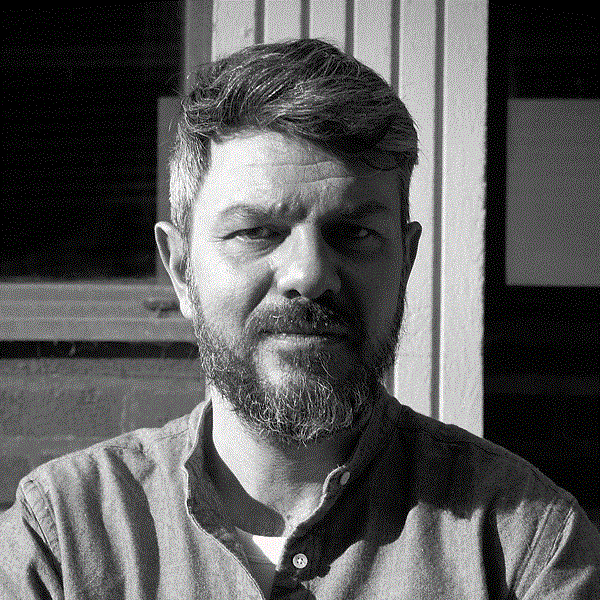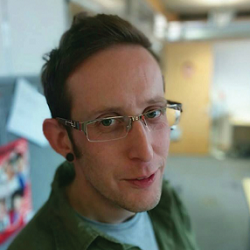Call for Participation
Good for the planet - good for you: Reduce food waste through AI and playful interactions
Sunday, 23 July 2023 - 13:30-17:30
(Note: Cancelled)
Alessandro Canossa
Royal Danish Academy, Schools of Architecture,
Design and Conservation, Denmark
aleandait@gmail.com
Serafim Bakalis
University of Copenhagen, Department of Food Science, Denmark
bakalis@food.ku.dk
Martin Flintham
University of Nottingham, Department of Computer Science, United Kingdom
martin.flintham@nottingham.ac.uk
Jichen Zhu
IT University of Copenhagen, Denmark
jichen.zhu@gmail.com
The aim of the workshop is to gather and motivate a community of practice with a mission to address the Food Waste challenge through use of digital technologies, especially through the lens of AI and play.
The food system has a significant environmental impact, e.g. contributing 7.1 billion tons of CO2-e per annum, representing roughly 15% of the total anthropogenic greenhouse gas (GHG) emissions. At the same time, 30% of the food produced is wasted, accounting for about 1.3. billion tons of CO2 per year. In the developing world the majority of the food waste occurs close or at the consumer’s home, with up to 60% of EU food waste deemed avoidable. As such, reducing food waste is important in terms of alleviating environmental impact and achieving UN Sustainable Development Goals (especially SDG 11&12). While there are fundamental gaps in understanding the causes of food waste, there is an urgent need to develop novel solutions to assist both individuals and societies in changing practices.
The expected outcome of the workshop is to develop an understanding of how artificial intelligence and playful technologies can be leveraged to reduce food waste and promote healthier food consumption.
The Workshop’s suggested topics are:
|
13:30 |
Start of the workshop, framing of the discussion |
|
14:00 |
Participants presentations |
|
15:30 |
Coffee break |
|
16:00 |
Industry panel |
|
16:30 |
Group discussion and summary |
|
17:30 |
End of the workshop |
Submission for the Workshop
We expect position papers to be written in English. All position papers will be peer reviewed. The position papers should be rooted in at least one of the topics listed above. Ideally, position papers will scope how topics A and B can be used to improve the state of topics C and D. Prospective authors should submit their proposed papers through the HCII Conference Management System (CMS).
Submission for the Conference Proceedings
The contributions to be presented in the context of Workshops will not be automatically included in the Conference proceedings.
However, after consultation with the Workshop Organizer, authors of accepted workshop proposals that are registered for the conference, are welcome to submit through the HCII Conference Management System (CMS), an extended version of their workshop contribution, to be considered for presentation at the Conference and inclusion in the “Late Breaking Work” conference proceedings, either in the LNCS as a long paper (typically 12 pages, but no less than 10 and no more than 20 pages), or in the CCIS as a short paper (typically 6 pages, but no less than 4 and no more than 8), following peer review.
The submission deadline for the camera-ready papers (long or short) for the “Late Breaking Work” Volumes of the Proceedings is the 23rd of June 2023.
|
Submission of workshop proposals |
8 May 2023 |
|
Notification about submission acceptance |
22 May 2023 |
|
Finalization of workshop organization and registration of participants |
31 May 2023 |

Dr. Alessandro Canossa is associate professor at the Royal Danish Academy; consultant on Data Insights for Ubisoft and Czar of Player Experience at modl.ai. Dr. Alessandro Canossa has been straddling between the game industry and academia for many years. He has been Assistant Professor at the IT University of Copenhagen, Associate Professor at Northeastern University in Boston and he's now at the Royal Danish Academy of Fine Arts. He was also Senior User Researcher and Data Scientist at Massive Entertainment a Ubisoft studio. He's now involved with Modl.AI, a company providing AI services to the game industry, where he's exploring how to triangulate machine learning and data-driven insights with surveys and lab observations to advance the field of predictive behavioral analytics.

Prof. Serafim Bakalis has been developing experimental tools and models to design food products. He has a strong interest in developing sustainable food systems. His career included 12 years in the UK (Universities of Birmingham and Nottingham). His work is interdisciplinary and funded from a wide range of sources including UK, industry and EU. For example, he has been the Co-I for a large interdisciplinary centre aiming at use of personal data to create new services and experiences. He is currently a Professor of Dairy Products in the University of Copenhagen where he is establishing a group aiming to apply AI in the foods area. He has co-authored more than 100 peer-reviewed papers and is in the editorial board of a number of food related journals.

Dr Martin Flintham is an Assistant professor at the University of Nottingham, where he is a member of the Mixed Reality Lab and Horizon Digital Economy Research Institute. His research focuses combines three areas; games and play, and their application to non-entertainment domains; the IoT and its role in the home and domestic contexts, and virtual and augmented reality for consumer experiences and product development. His research embeds the methodology of working “in the world” to create publicly deployed experiences and interventions, in collaboration with the creative industries, SMEs and multinationals in the FMCG space. He has received research funding from EPSRC, AHRC and the EU. He has published extensively in HCI and co-authored more than 50 peer-reviewed papers.

Dr. Jichen Zhu is an Associate Professor of Digital Design at the IT University of Copenhagen, Denmark. She directs the Procedural eXpression Lab (PXL) group and leads the User eXperience (UX) Design Specialization. Her research interest lies at the intersection of human-computer interaction, interaction/game design, and artificial intelligence (AI). Her focus is designing and developing novel human-AI interaction, especially in the forms of personalized games for learning and health. She has co-authored more than 100 peer-reviewed research publications and received several Best Paper Awards. Her research has been funded by National Science Foundation, National Institute of Health, and Novo Nordic Foundations. She is a Co-Editor of the Software Studies Book Series at MIT Press and a Board Member of Society for the Advancement of the Science of Digital Games (SASDG). Jichen received a Ph.D. in Digital Media from Georgia Tech. She also holds an MS in Computer Science from Georgia Tech, a Master of Entertainment Technology from Carnegie Mellon University, and a BS from McGill University.
Attendance in the workshops will be available as ‘in-person’ only. Workshops are ‘closed’ events, i.e. only authors of accepted workshop proposals, registered for the specific workshop, will be able to attend.
A registration fee of $75 is applicable for workshop participants. Workshop participants who wish to attend the Conference will need to also register for the Conference.
The total number of participants per workshop cannot be less than 8 or exceed 25.